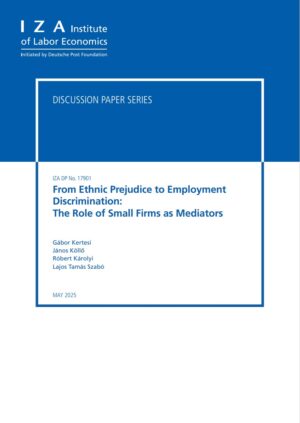In recent years public and political debate suggested that individuals with chil- dren value the future more. We attempt to substantiate the debate and using a representative survey we investigate if the number of children (or simply having children) indeed is associated with a higher valuation of the future that we proxy with an aspect of time preferences, patience. We find that in general there is no correlation between having children and patience, though for young women with below-median income we find some weak evidence in line with the conjecture. We also show some evidence that for this subpopulation it is not having children that matters, but marital status. More precisely, young single women are less patient than other young non-single women.










